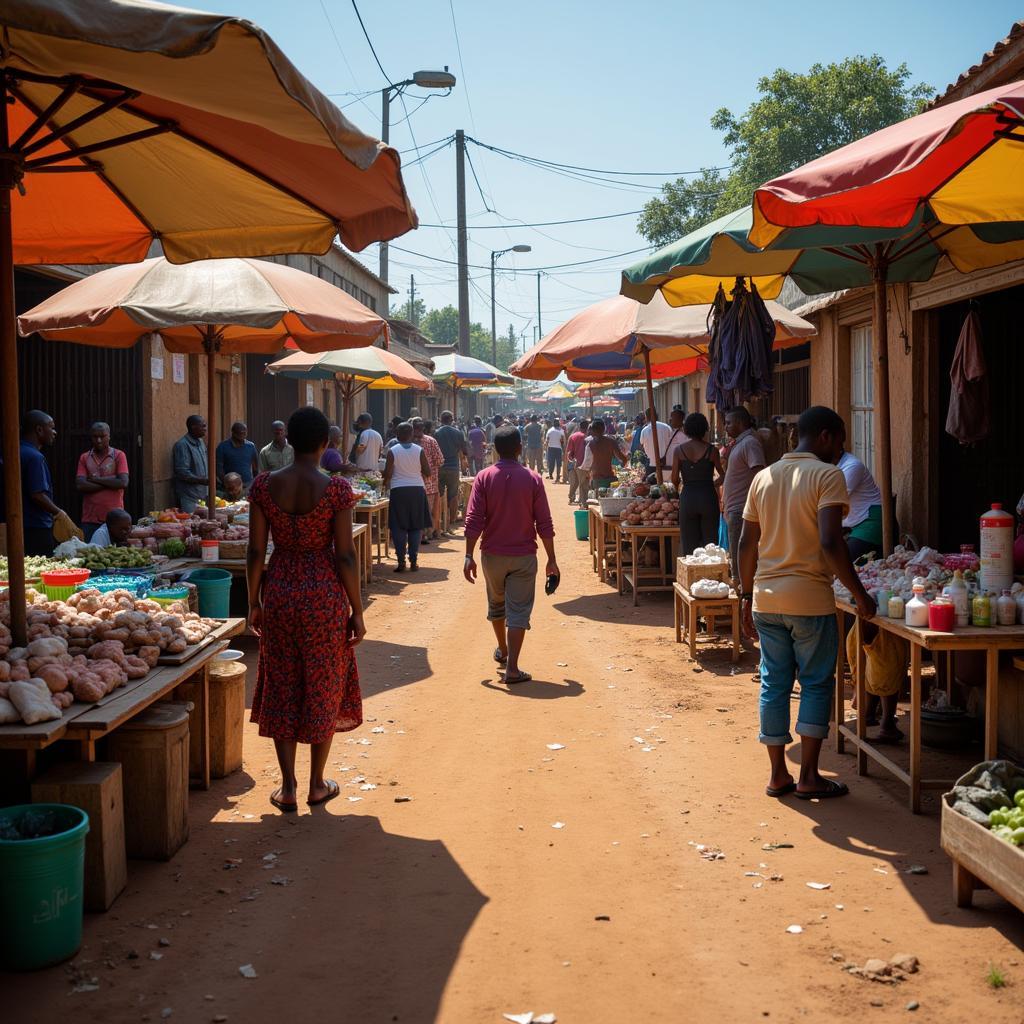African Country Places Millionaires Among Other Peoples
Africa, a continent often associated with poverty and hardship, is increasingly becoming home to a growing number of millionaires, living alongside individuals facing various economic realities. This complex dynamic creates a unique socio-economic landscape, posing questions about wealth distribution, opportunity, and the overall trajectory of African nations. This article delves into this phenomenon, exploring the factors contributing to the rise of millionaires in African countries and the implications for other segments of the population.
The Rise of Millionaires in Africa: A Complex Narrative
The narrative of Africa’s economic landscape is shifting. While challenges persist, the continent is witnessing a surge in wealth creation, particularly among a select few. This rise of millionaires is driven by several key factors, including burgeoning industries, technological advancements, and a growing entrepreneurial spirit. Understanding this growth requires a closer look at the specific sectors fueling this economic expansion.
Key Industries Contributing to Wealth Creation
Several industries have played a pivotal role in the rise of African millionaires. These include:
- Technology: The tech sector has exploded across Africa, with mobile money solutions, e-commerce platforms, and software development attracting significant investment and creating immense wealth.
- Natural Resources: Africa’s abundant natural resources, including oil, gas, and minerals, continue to be a significant source of wealth for individuals and corporations.
- Real Estate: Rapid urbanization and population growth have fueled a boom in the real estate sector, creating opportunities for developers and investors.
- Financial Services: The expansion of financial services, including banking and insurance, has contributed to the growth of a wealthy middle class and the creation of new millionaires.
The Impact on Other Segments of the Population
The rise of millionaires in Africa presents a complex and multifaceted impact on other segments of the population. While it can stimulate economic growth and create job opportunities, it also raises concerns about inequality and social stratification.
- Job Creation: The growth of businesses owned by millionaires can lead to increased employment opportunities for the wider population.
- Investment in Infrastructure: Wealthy individuals often invest in infrastructure projects, which can benefit communities and improve living standards.
- Philanthropy: Some African millionaires engage in philanthropic activities, contributing to social development and poverty reduction initiatives.
- Widening Inequality: The concentration of wealth in the hands of a few can exacerbate existing inequalities and create social tensions.
- Limited Access to Opportunities: Many people may lack access to the education, resources, and networks necessary to participate in the growing economy.
 African Community Experiencing Economic Growth Impact
African Community Experiencing Economic Growth Impact
Addressing the Challenges and Maximizing Opportunities
The emergence of a wealthy elite alongside a large population struggling with poverty presents a significant challenge for African countries. Addressing this requires a multi-pronged approach:
- Investing in Education and Skills Development: Equipping individuals with the skills needed for the 21st-century economy is crucial for inclusive growth.
- Promoting Entrepreneurship and Innovation: Creating an enabling environment for small and medium-sized enterprises (SMEs) can empower individuals and generate widespread economic opportunities.
- Strengthening Governance and Transparency: Combating corruption and promoting good governance are essential for ensuring that the benefits of economic growth are shared equitably.
- Investing in Social Safety Nets: Providing social safety nets for vulnerable populations can mitigate the negative impacts of inequality and ensure a minimum standard of living.
“Investing in education and empowering local communities is crucial for ensuring that the benefits of economic growth reach all segments of the population,” says Dr. Amina Omar, a leading economist specializing in African development.
 African Education Initiative Empowering Youth
African Education Initiative Empowering Youth
Conclusion
The rise of millionaires in African countries is a complex phenomenon with both positive and negative implications for other segments of the population. While it can drive economic growth and create opportunities, it also raises concerns about inequality and social stratification. Addressing these challenges requires a concerted effort to invest in education, promote entrepreneurship, strengthen governance, and provide social safety nets. By fostering inclusive growth, African countries can ensure that the benefits of economic progress are shared by all, creating a more prosperous and equitable future for all its citizens.
FAQ
- What are the main drivers of wealth creation in Africa?
- How does the rise of millionaires impact other segments of the population?
- What are the key challenges associated with this phenomenon?
- What strategies can be implemented to address these challenges and promote inclusive growth?
- What role does technology play in the rise of African millionaires?
- How can African governments ensure that the benefits of economic growth are shared equitably?
- What are some examples of successful initiatives that have promoted inclusive growth in African countries?
Related Articles
- The Future of African Economies
- Investing in Africa’s Youth
- The Role of Technology in African Development
When you need assistance, please contact us: Phone: +255768904061, Email: kaka.mag@gmail.com, or visit us at Mbarali DC Mawindi, Kangaga, Tanzania. We have a 24/7 customer service team.


